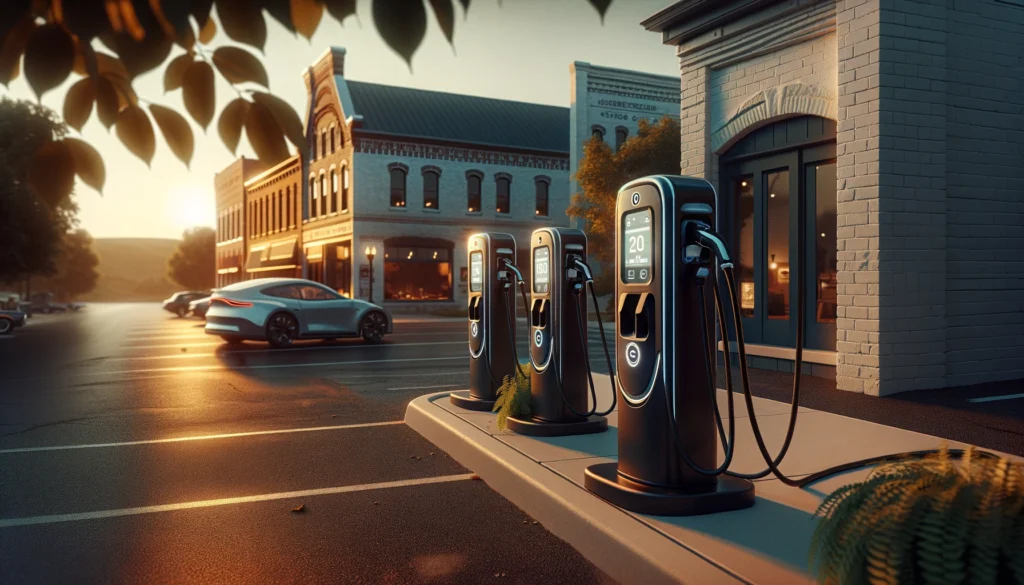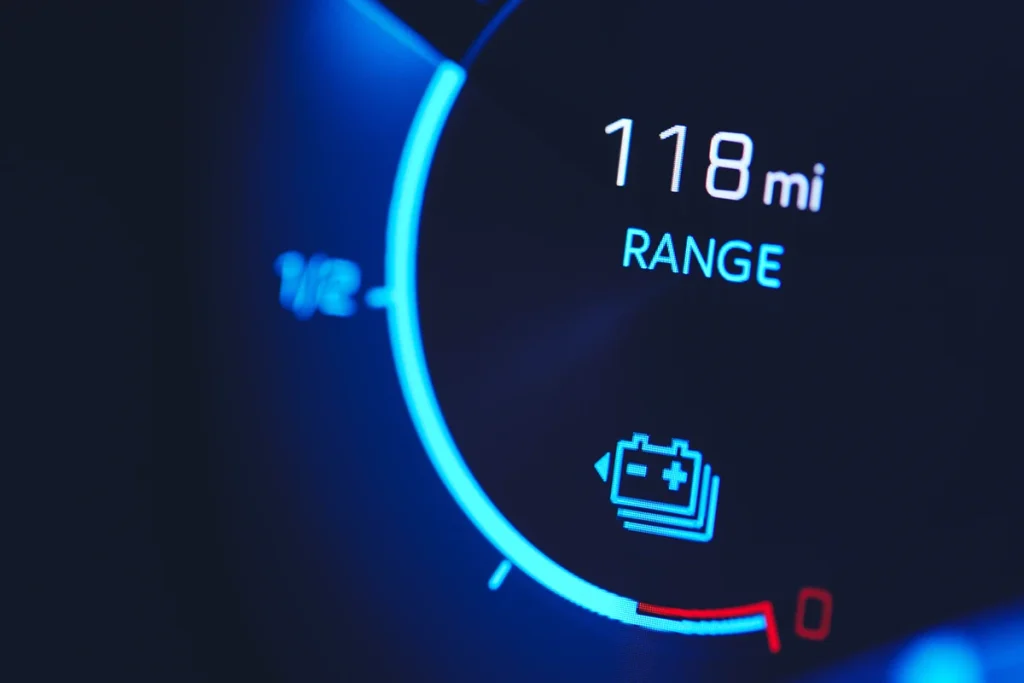The Iowa Department of Transportation (DOT) has announced plans to invest between $20 to $30 million over the next two years to install new electric vehicle (EV) charging stations across the state. These charging stations will be strategically located within a mile of a major freeway exit, with the aim of ensuring that there is a charging station available at least every 50 miles. The initiative is a response to the increasing demand for EV charging infrastructure as the number of registered electric and hybrid vehicles in Iowa continues to grow.
Growing Demand for EV Charging Stations in Iowa
Garrett Pedersen, the Systems Planning Bureau Director with Iowa DOT, highlights the significant increase in the number of registered electric vehicles in the state. Although electric vehicles still represent a relatively small portion of the overall vehicle population in Iowa, their growth rate is outpacing that of traditional vehicles. Pedersen notes that the total number of electric and hybrid vehicles in Iowa is approaching 13,000, with the majority located in Polk County, which is home to around 3,000 electric vehicles.
Elisa Maria Argiro, an electric vehicle owner, expresses her support for the expansion of charging stations, emphasizing the need for more availability and convenience, particularly for Tesla owners. She mentions the importance of having superchargers along major routes to facilitate long-distance travel without the need for extensive planning.
To meet the increasing demand for EV charging infrastructure, the state plans to allocate a total of $50 million over the next five years. However, the cost of establishing a single charging station is not insignificant. Estimates from various vendors suggest that the charging unit alone could cost between $400,000 to $500,000.
Application Process and Eligibility Criteria for Charging Stations
The Iowa DOT has opened the application process for organizations interested in installing one of the new charging stations. Interested parties must collaborate with electricity providers and ensure that their proposed location is near a major roadway, such as Interstates 25, 29, 80, or 380. The objective is to improve the availability of charging infrastructure along national routes, enhancing the accessibility of electric vehicle charging for both residents and visitors.
The deadline for applications is March 13th, and the DOT will evaluate the proposals based on various factors, including feasibility, impact on the charging network, and alignment with the state’s overall electrification goals. Successful applicants will have the opportunity to contribute to the development of Iowa’s EV charging landscape and support the transition to cleaner transportation options.
Addressing Disparities in EV Charging Infrastructure
While the number of electric vehicles in Iowa has been steadily increasing, the distribution of charging stations across the state still needs to be balanced. Metro areas generally have a sufficient number of charging stations, although there often needs to be more fast-charging options. In contrast, many rural communities need a single public charging station, making it challenging for electric vehicle owners in those areas to access charging infrastructure.
Mike Carberry, a former Johnson County Board of Supervisors member, highlights this disparity, mentioning his own experience of driving to Independence and not finding a single electric charger in the entire county. This need for charging options is a common concern for electric vehicle owners who rely on charging infrastructure beyond their home charging setups.
Current State of Iowa’s EV Charging Infrastructure
As of the end of 2022, Iowa had 10,712 registered electric vehicles, a significant 28 percent increase from the previous year. However, the number of charging stations only saw a 16 percent increase during the same period, leading to a gap between the growing demand for electric vehicle charging and the available infrastructure.
According to the U.S. Department of Energy database, Iowa currently has 320 public charging locations, offering a total of 698 charging ports. Approximately two-thirds of these charging sites are Level 2 chargers, which provide charging rates of 12 to 80 miles per hour. The remaining stations are Level 3, or fast chargers, offering charging rates of 2 to 30 miles per minute.
Level 2 chargers are often free and can be found at convenience stores, grocery stores, and other businesses, where customers are expected to spend money while waiting for their vehicles to charge. In contrast, Level 3 chargers typically come with a fee.
Federal Funding and Expansion Plans
To address the need for additional charging infrastructure along interstates, including I-80, I-380, I-35, and I-29, Iowa has been approved to receive over $51 million in federal funding over five years. The National Electric Vehicle Infrastructure Formula Program, which will provide $5 billion nationally through 2026, aims to install new charging stations at least every 50 miles and within 1 mile of interstates.
However, the implementation of the charging expansion has faced delays, and Iowa is yet to finalize its plan for allocating federal funding to private companies responsible for installing the new charging stations. The DOT is ensuring that grantees meet federal requirements, such as maintaining operational charging stations at least 97 percent of the time.
Despite the challenges, the Iowa DOT is optimistic about the progress of the rollout and expects to release the notice of funding availability for applications later in the summer. The goal is to announce the first round of projects by the end of the calendar year.
Introduction of a User Fee for EV Charging
Starting from a recent date, owners of non-residential EV charging stations are required to pay a 2.6-cent per kilowatt-hour fee for all electricity charged at their terminals. This new fee, passed by the Iowa Legislature in 2019, is intended to replace the revenue from gas taxes that electric vehicle owners no longer contribute. The fuel tax accounts for 40 percent of the State Road Use Tax Fund, which funds road maintenance and improvements at the state, county, and city levels.
The introduction of the user fee is part of a broader effort to ensure that electric vehicle owners contribute to road usage costs in a manner similar to traditional vehicle owners. In addition to the user fee, electric vehicle owners also pay an annual registration fee of $130 for battery EVs and $65 for plug-in hybrid EVs, on top of the standard vehicle registration fee.
The impact of the user fee on EV charging costs varies among charging station operators. Some, like Kum & Go, have decided to pass on the user fee to EV drivers by adjusting the price of charging per kilowatt-hour. Others, such as Hy-Vee and Park CR, have chosen to wait to pass on the charge to customers immediately, indicating that they are evaluating the impact of the fee before making any changes to their charging policies.
Final Thoughts
Iowa’s commitment to expanding its EV charging infrastructure demonstrates the state’s recognition of the growing demand for electric vehicles and the need for reliable and accessible charging options. With an investment of approximately $30 million over the next two years and a total of $50 million over the next five years, Iowa aims to ensure that electric vehicle owners can travel across the state with ease and convenience.
By strategically locating charging stations within a mile of major freeway exits and implementing a competitive application process, the state hopes to address the disparities in charging infrastructure between urban and rural areas. Additionally, the federal funding allocated to expanding charging capacity along interstates will further enhance the accessibility of EV charging for long-distance travelers.
While challenges persist, such as delays in implementing the federally-funded charging expansion and the need to address disparities in charging infrastructure, the Iowa DOT remains committed to facilitating the transition to electric vehicles and supporting the state’s clean transportation goals.


